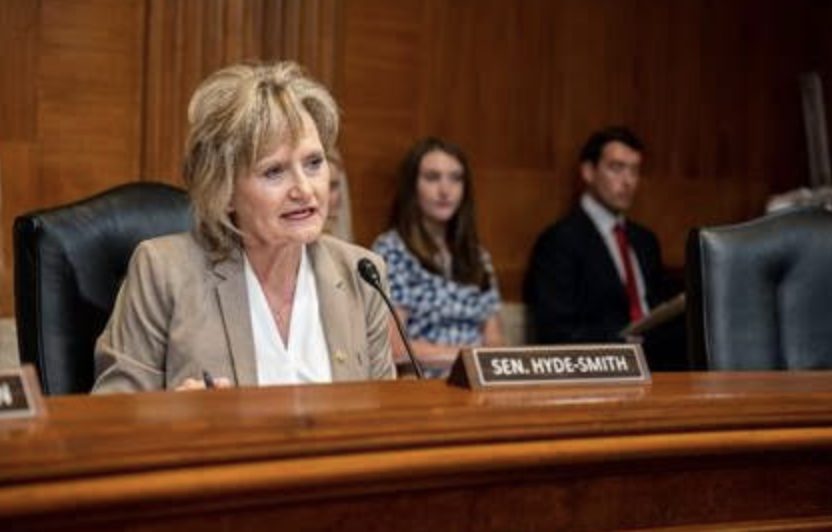
U.S. Senator Cindy Hyde-Smith questioned the Biden Administration’s actions that could impact a very popular program used to spur investments in Mississippi, particularly economically-distressed areas. Their actions could also add new regulatory burdens on small businesses.
The questioning took place during a Senate Financial Services and General Government Appropriations Subcommittee hearing. Hyde-Smith, who is a ranking member, sought justification for reducing funding for the Community Development Financial Institutions (CDFI) Bank Enterprise Program.
Most recently, 48 Mississippi banks, credit unions, and other financial institutions received $8 million to back investments across the state.
“The Bank Enterprise Program is well received by local banks and credit unions because it allows them to leverage their assets to invest in small businesses and start-ups, which gives them the ability to support job creation and retention in areas that need it most,” Hyde-Smith said. “This program is oversubscribed compared to other programs, and I want to know how you intend to support investments in economically-distressed areas with reduced funding.”
Congress appropriated $37 million for the Bank Enterprise Program in FY2022, which is more than the $26 million included in the Biden budget request.
Deputy Treasury Secretary Wally Adeyemo told Hyde-Smith the Department fully supports the Bank Enterprise Program and other community investment programs, but that the administration wants to attract more private capital to also support housing and other community needs.
Hyde-Smith also cautioned Adeyemo on the financial and compliance burdens facing small businesses as the Treasury Department works to finalize Corporate Transparency Act regulations for a Beneficial Ownership Database. The database is intended to help fight financial crimes by bringing transparency to who forms, owns, and controls a business.
“Treasury estimates the proposed rules to implement the Corporate Transparency Act will require more than 25 million existing small businesses to spend an aggregate of more than $4 billion to submit reports on their beneficial owners to the Financial Crimes Enforcement Network,” Hyde-Smith said. “A lot of people really see this as an extra mandate and as extra work. I hope that it does prove to be a very beneficial tool at addressing this issue, because it will be extremely burdensome for a lot of people.”
Adeyemo acknowledged the estimated compliance costs, but said the Department is mindful of compliance costs as it establishes a database.
“Our goal is really to try to find a way to make something that is comprehensive, but in which the reporting requirements are as modest as possible in order to make it as easy as possible for companies to comply and for us to have a holistic database in this country,” Adeyemo said.
Hyde-Smith also used the hearing to question Treasury Department enforcement of economic sanctions placed on Russia after its invasion of Ukraine, as well as the high level of Treasury and Internal Revenue Service employees who continue to telework instead of returning to their offices.
The entire hearing on the budget requests for the Treasury Office of Terrorism and Financial Intelligence, and the Treasury Financial Crimes Enforcement Network is available here.











